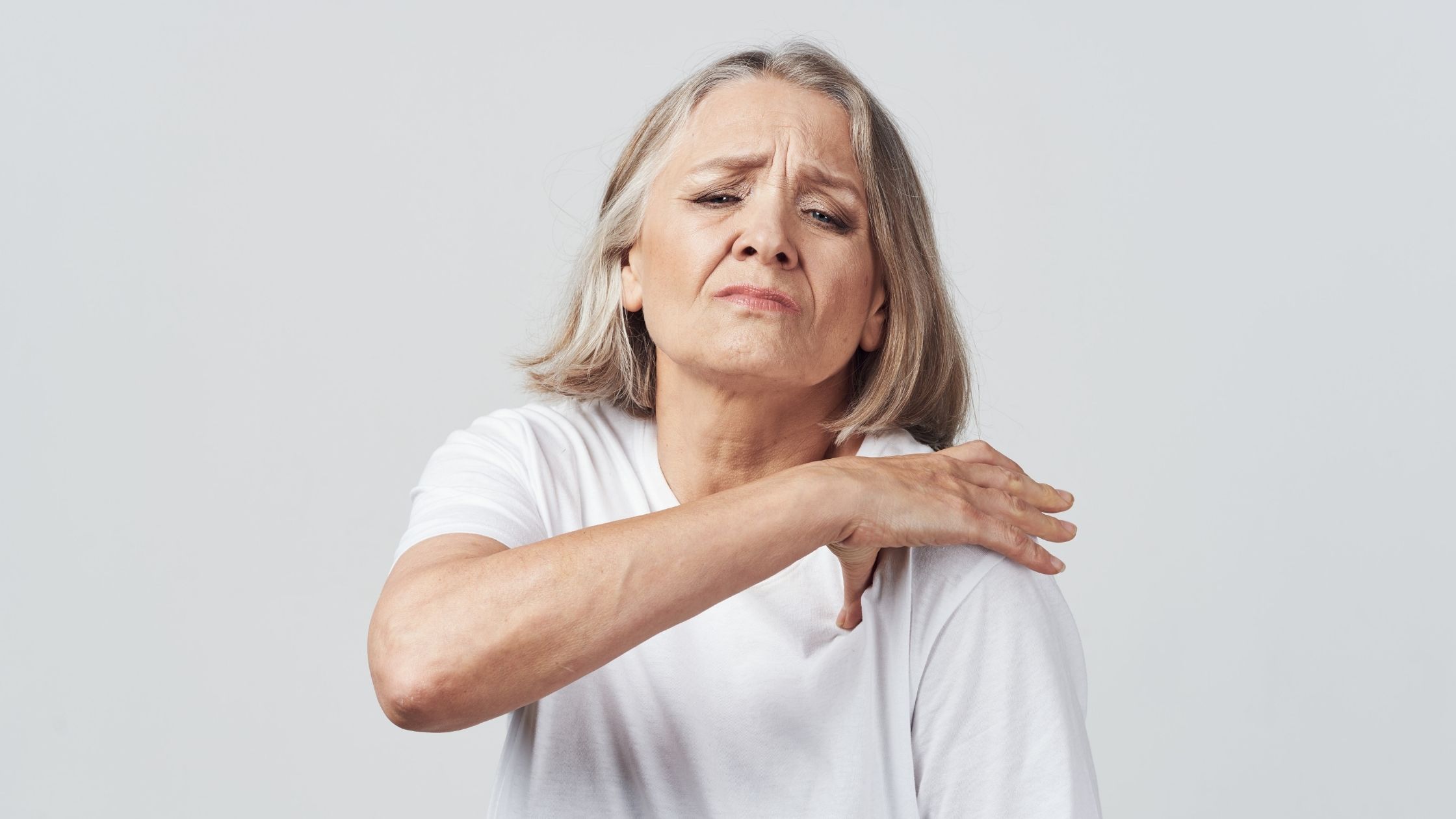
Joint Pain And Digestive Issues During Menopause
As we experience peri or full menopausal symptoms, we are well aware of the massive changes in our bodies, but are there things we can change to help alleviate some of the symptoms, and do the things we eat and drink have an effect on the symptoms? Two of the most seemingly unrelated symptoms are joint pain and stomach issues.
It would help understand the implications of a particular food and drink we consume to treat these symptoms better.
Alcohol
Remember the days when you could slosh down a good few glasses of wine at the weekend without so much as a headache?
One of the unfortunate side effects of menopause is a lack of tolerance to alcohol.
One reason for this is that estrogen naturally protects the body from inflammation. Excess alcohol causes an increase in dehydration and inflammation through the body. It is also used as your first energy source, leaving food to be stored as fat and the vitamins and nutrients to wash through the system unabsorbed, which in turn can depress the functions of the body (think brain fog)
Alcohol can also increase uric acid settling in the joints. This is associated with gout, which in itself can be very painful.
Overuse of alcohol can impair gut functions as it increases the activation of specific gut microflora (LPS), leading to issues such as leaky gut syndrome.
Now back in our younger days, the adverse effects may have been kept in check by the interaction of multiple organs, particularly the liver, which would have made adjustments to counteract this. Unfortunately, without the presence of estrogen, our bodies aren’t fighting with an entire army.
Taking a short break from alcohol can help – Ladies who attempt Dry January usually feel some benefits.

Food Intolerance
Sugar
Studies have found that women with diets high in sugar can experience worse menopausal symptoms than those with a lower sugar intake.
The main reason is that sugar can cause an estrogen spike, so your already unsettled hormones will have more significant spikes and fall, causing a worsening of symptoms such as hot flushes and night sweats. As hormones diminish, we also become more resistant to insulin; therefore, the body has to work harder to manage blood sugar, causing weight gain and fatigue.
Studies show that excess sugar can also make HRT less effective.
Gluten
It is common for intolerance to occur during menopause. Symptoms of this intolerance can be bloating, stomach cramps, constipation, diarrhoea, urgency, fatigue, and aching joints.
Intolerance is caused by the body not breaking food down properly; the immune system then triggers an allergic reaction, and the digestive tract becomes inflamed as food stays in the gut too long, leading to fatigue, wind, brain fog.
If you consider cutting down on gluten, it is helpful to keep a food and symptom diary. It may be that certain products cause more problems than others. By keeping this diary, it is easier to find a link.
There is a big difference between celiac disease and gluten intolerance. If the symptoms are severe, it may be worth a health check with your doctor.
Useful supplements
Collagen
Collagen is the primary connective tissue that holds us together.
As estrogen plays a significant part in collagen production, it stands to reason that menopause can directly affect collagen production.
Collagen affects the elasticity of our skin and can also cause joint pain, which is common in menopause.
The breakdown of collagen in the joint leads to joint pain, stiffness, and loss of flexibility.
How can we replace the lost collagen if HRT is not an option?
There are many collagen supplements available. Having researched the efficacy of many of them, it seems that the powder is the most effective as it gets into the system quicker. Marine collagen is an excellent alternative for those of us who choose not to eat meat. As a vegan diet is becoming more popular, more plant-based options are also coming onto the market.
Many ladies report a difference in their skin elasticity, nail and hair strength, and, very significantly, a reduction in joint pain and inflammation, leading them to be more active.
During menopause, it is crucial to attempt to retain muscle mass with exercise, as the muscle help to support the joints.
Probiotics
Improving the health of your gut lining by supplementing your diet with a good probiotic can help reduce inflammation and bloating. It can also assist with fatigue and help to improve low mood, depression, and anxiety. Probiotics containing Lactobacillus appear to also help with hot flushes.
Like anything in life, moderation is the key. By reducing the intake of potential trigger food and drinks and then reintroducing them slowly, plus trying effective supplements, you can then establish what your body will tolerate.
Article written by Nikki Blackwell
